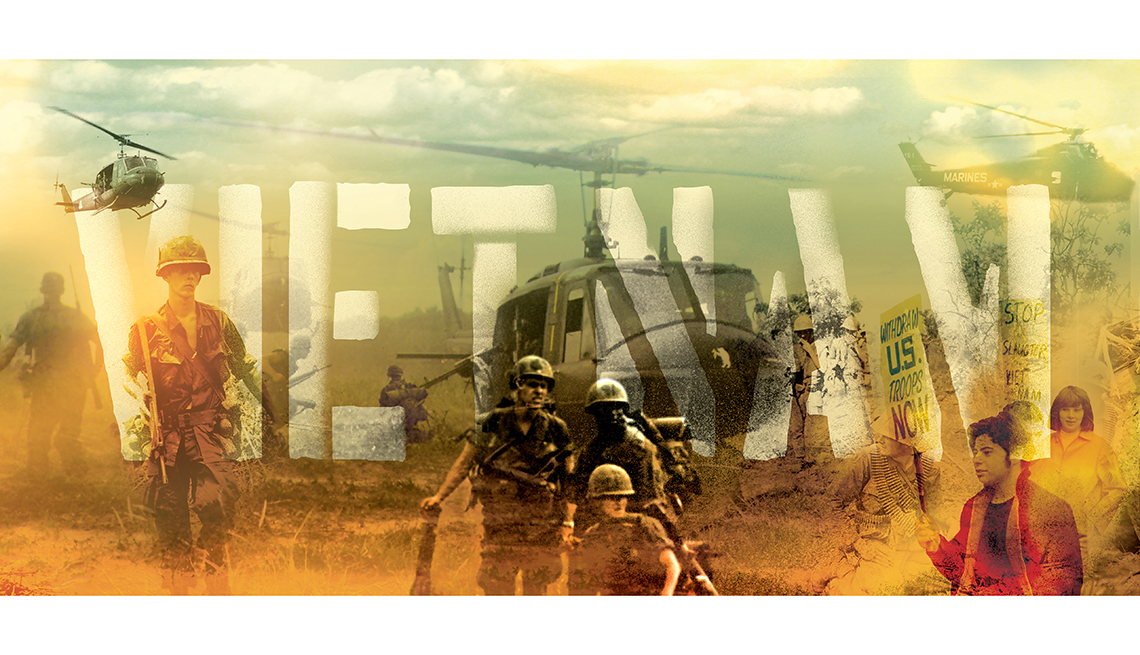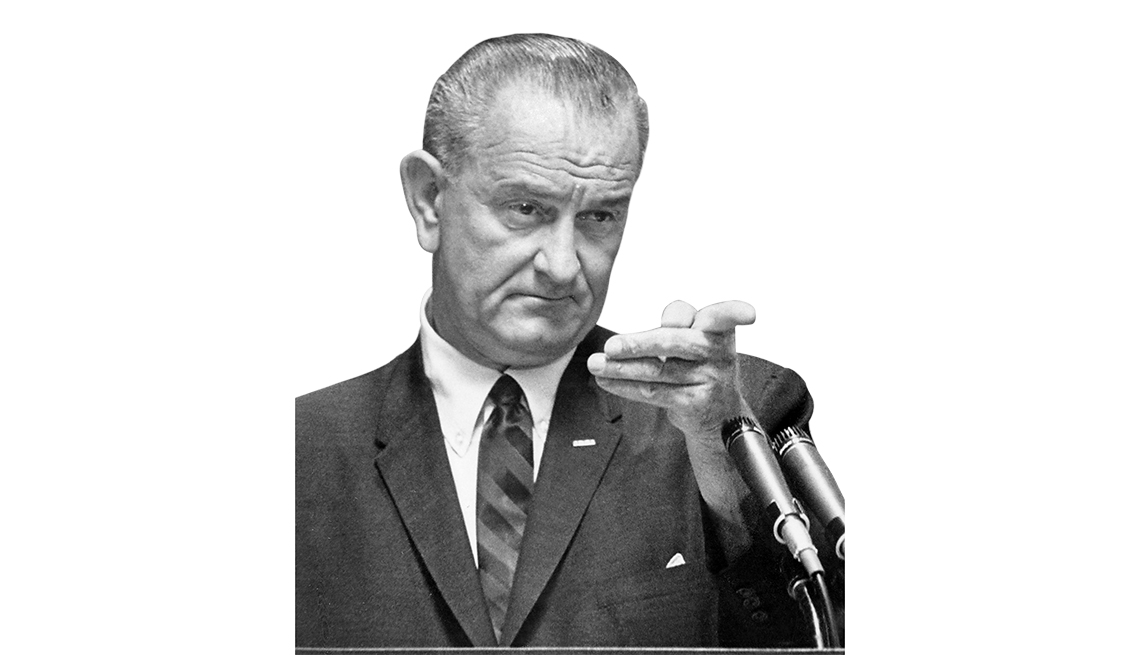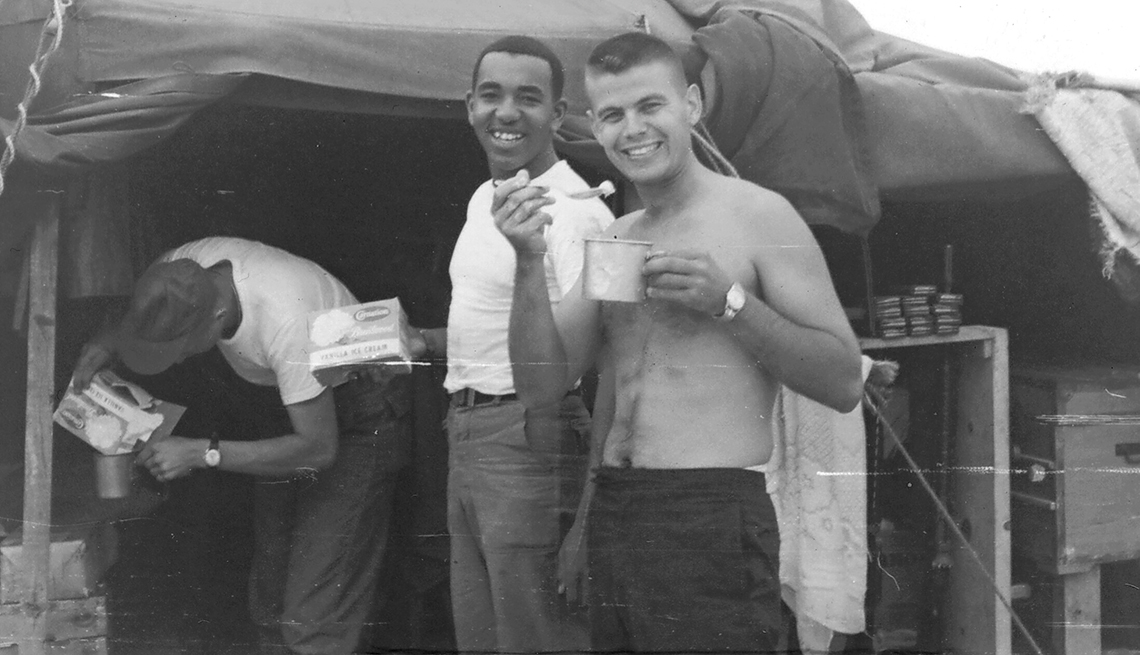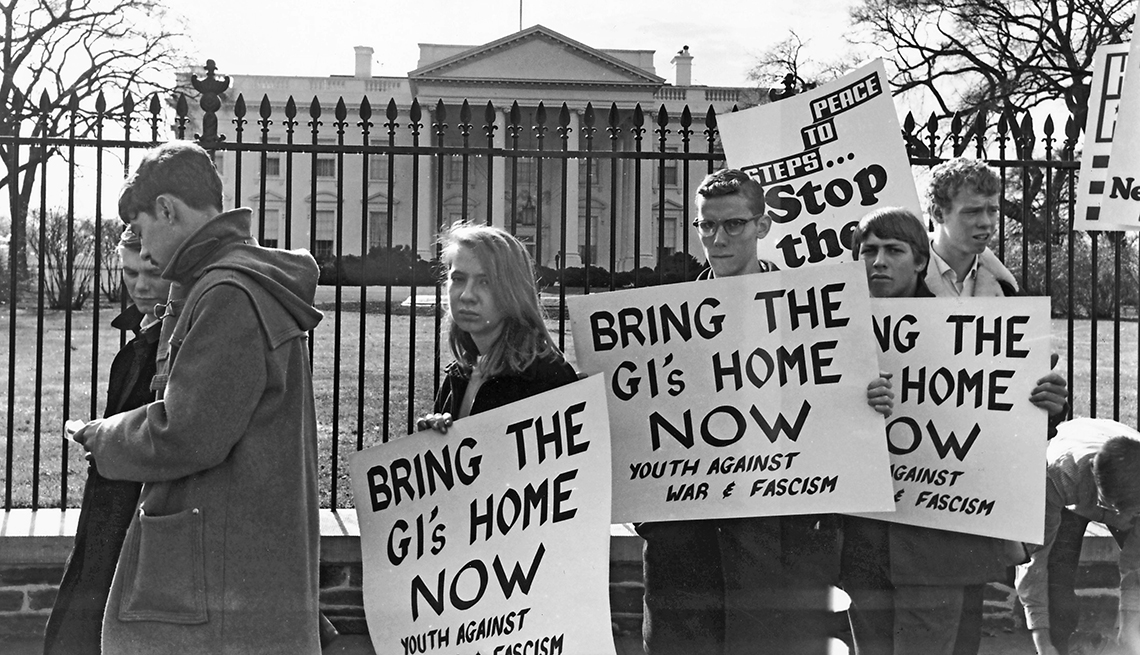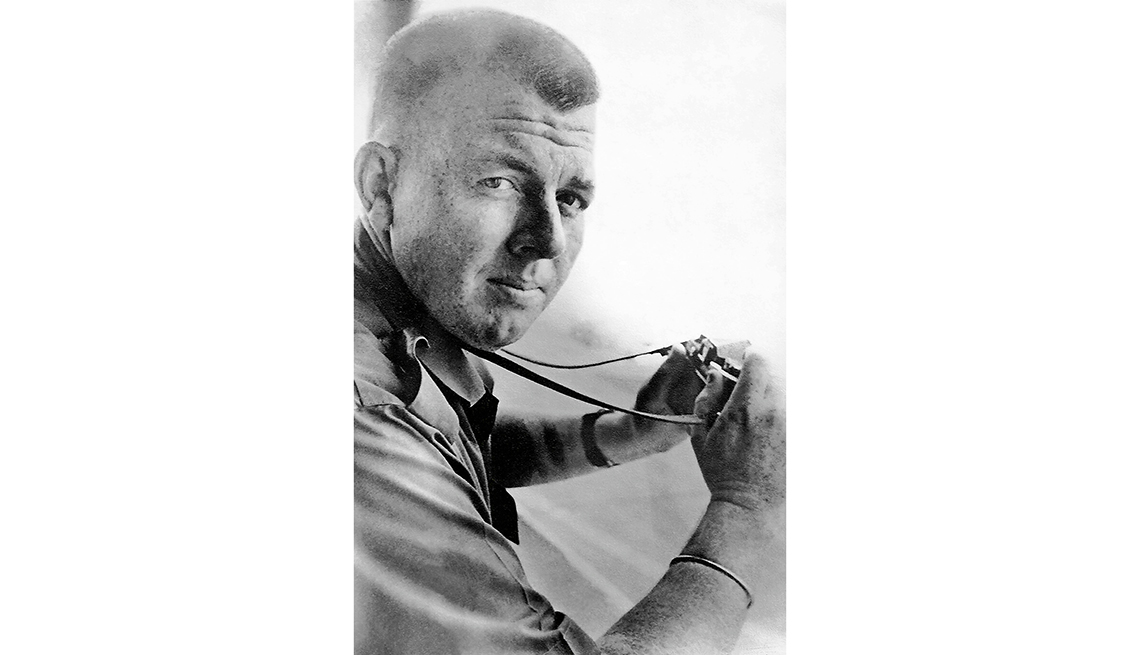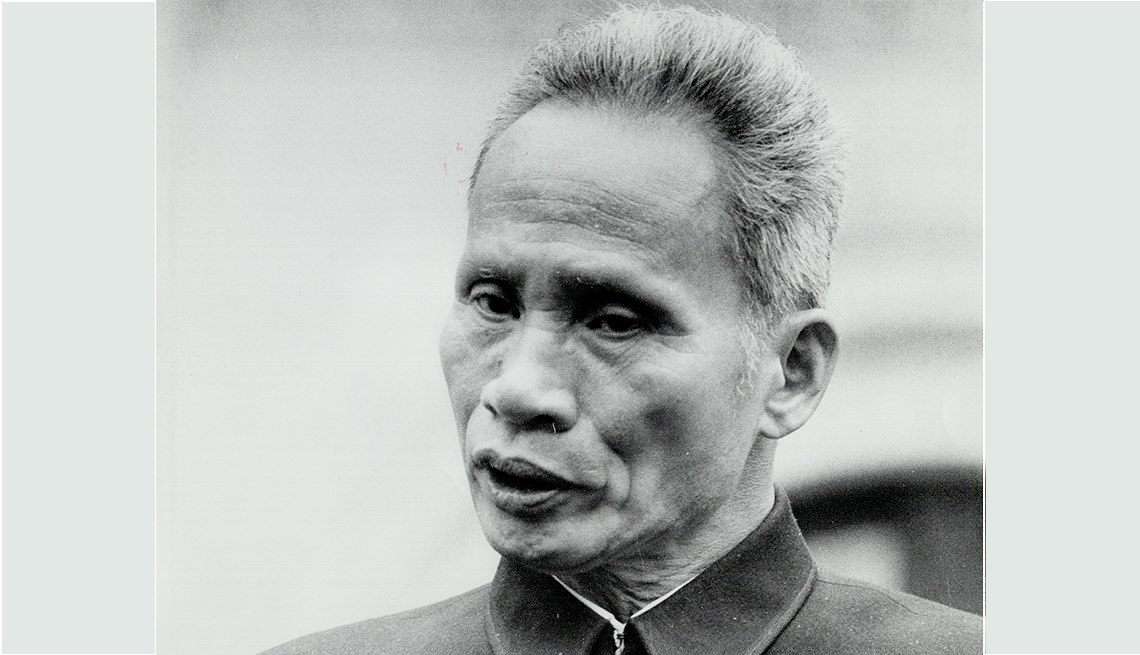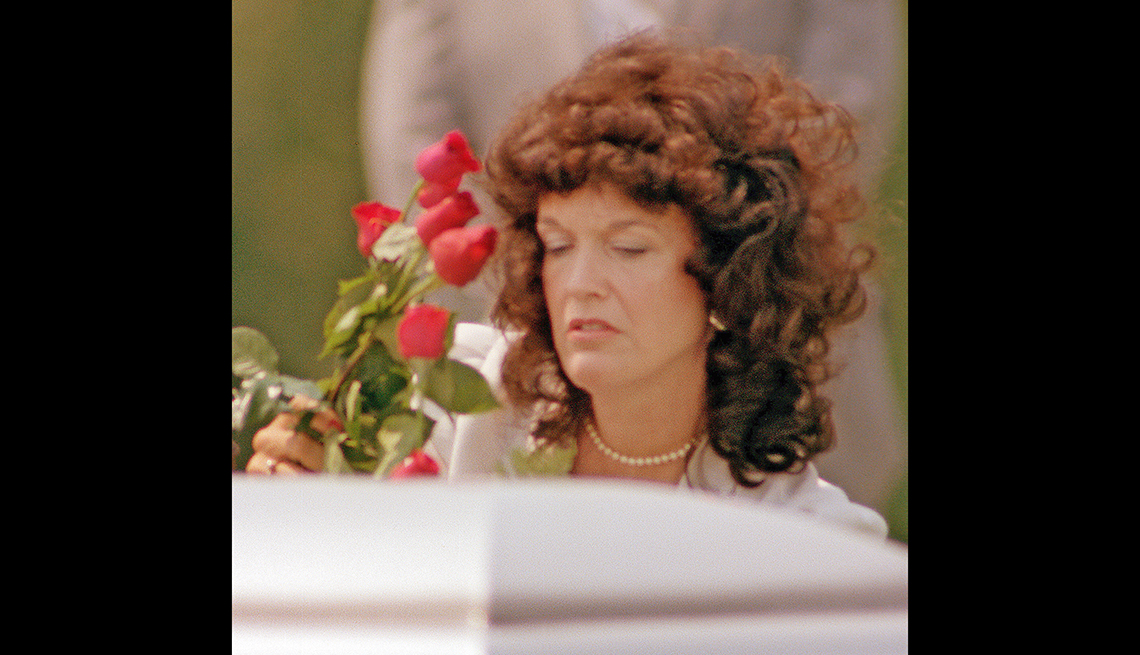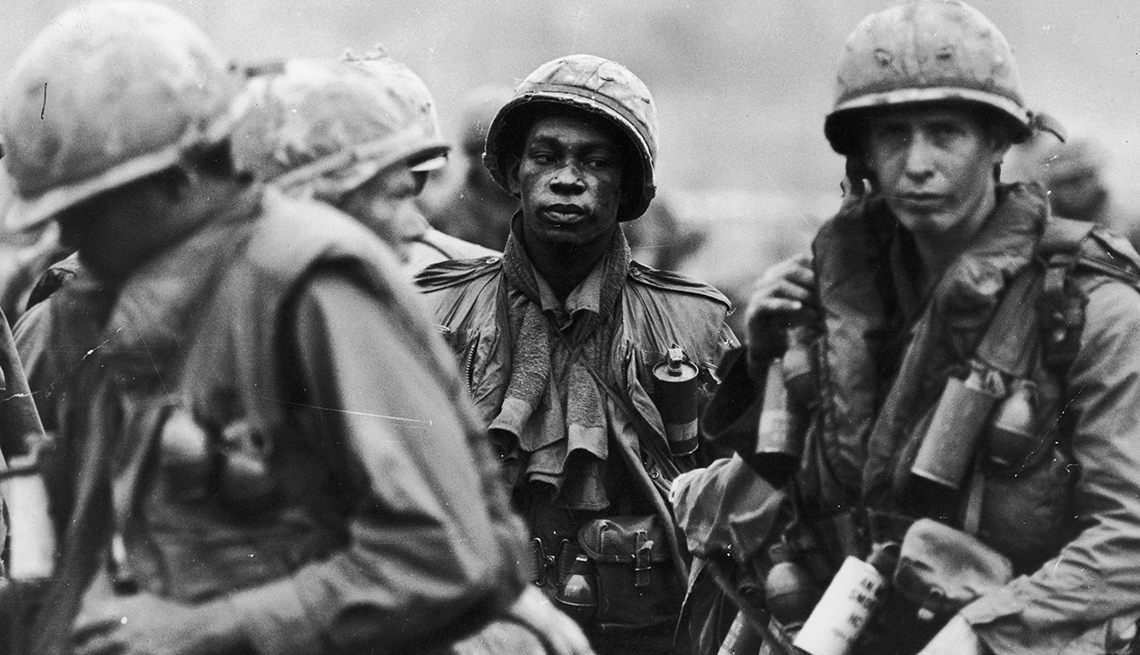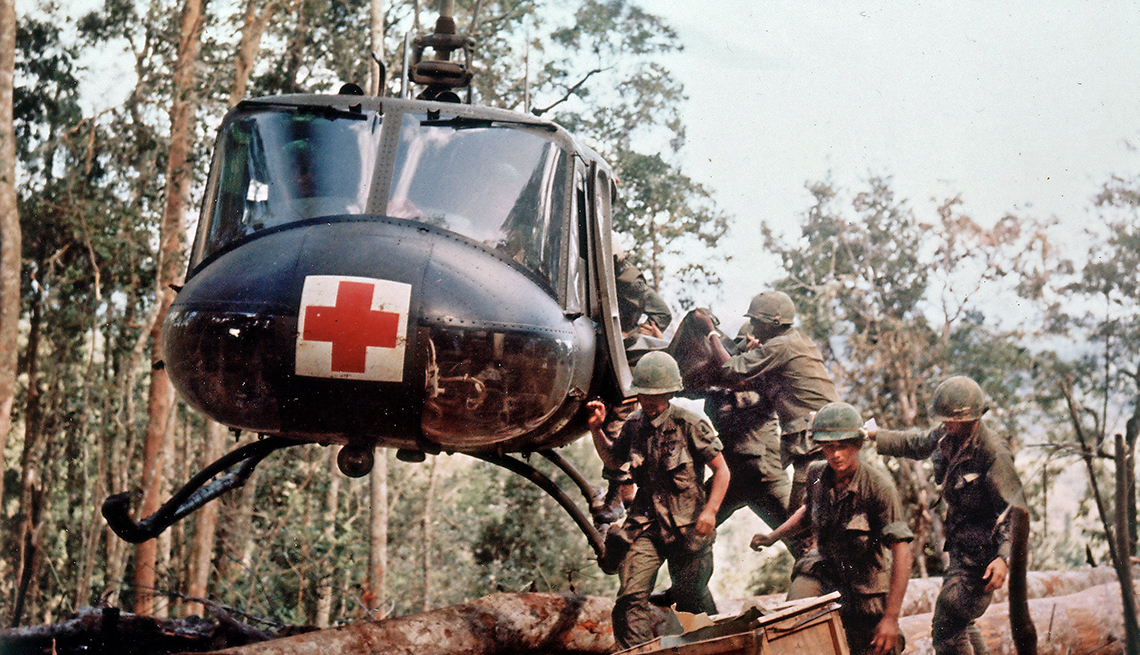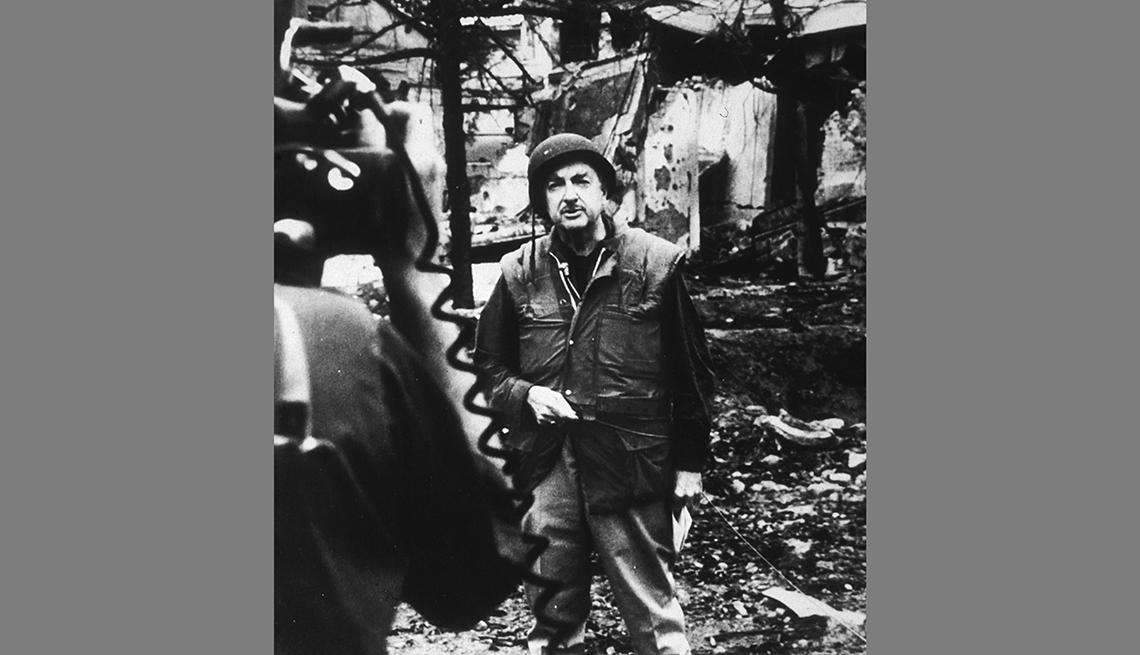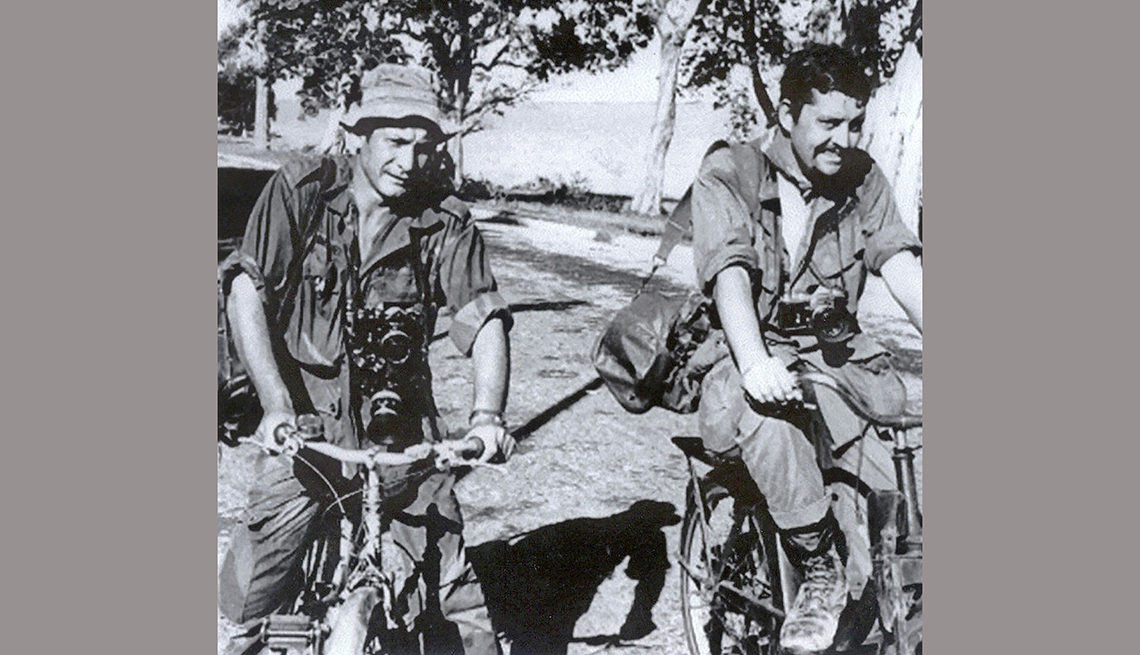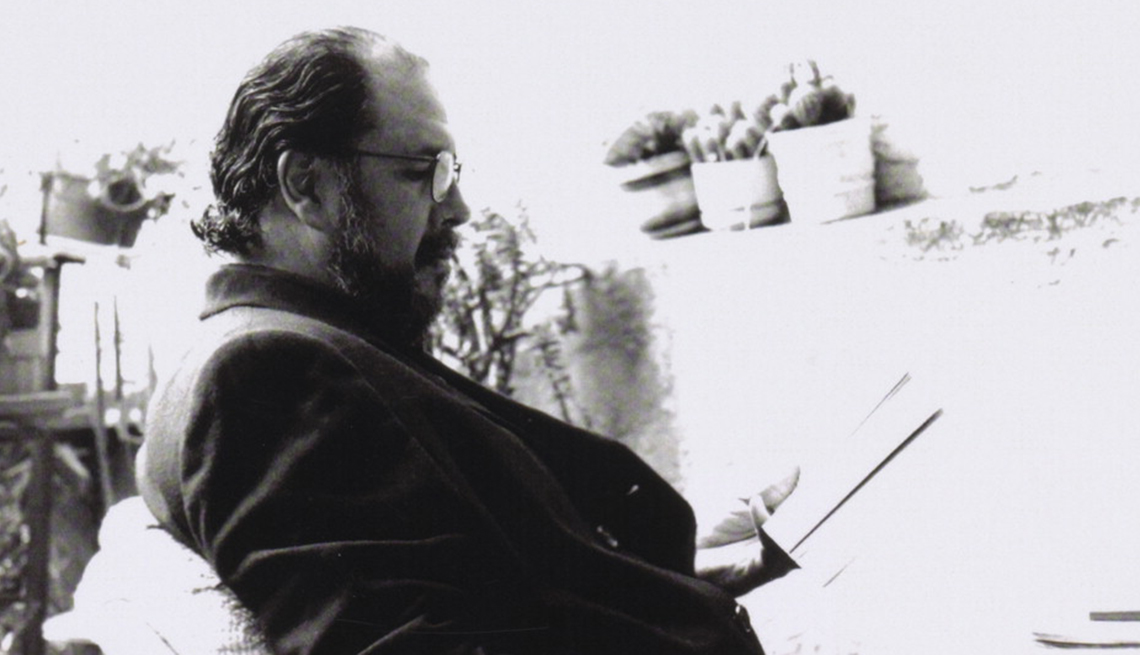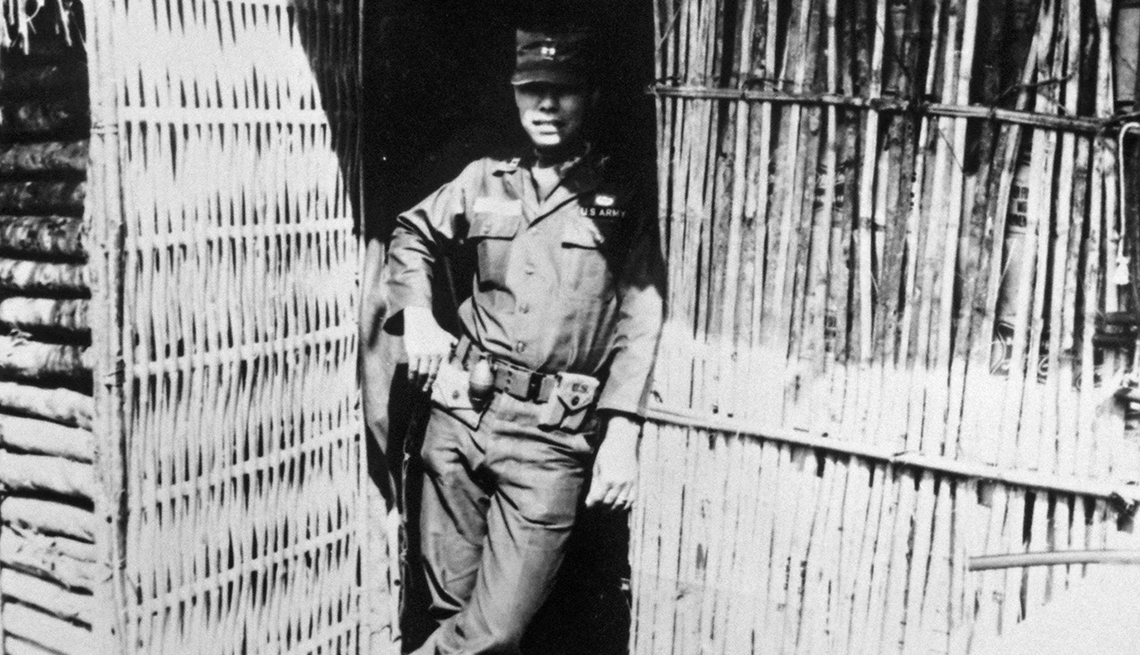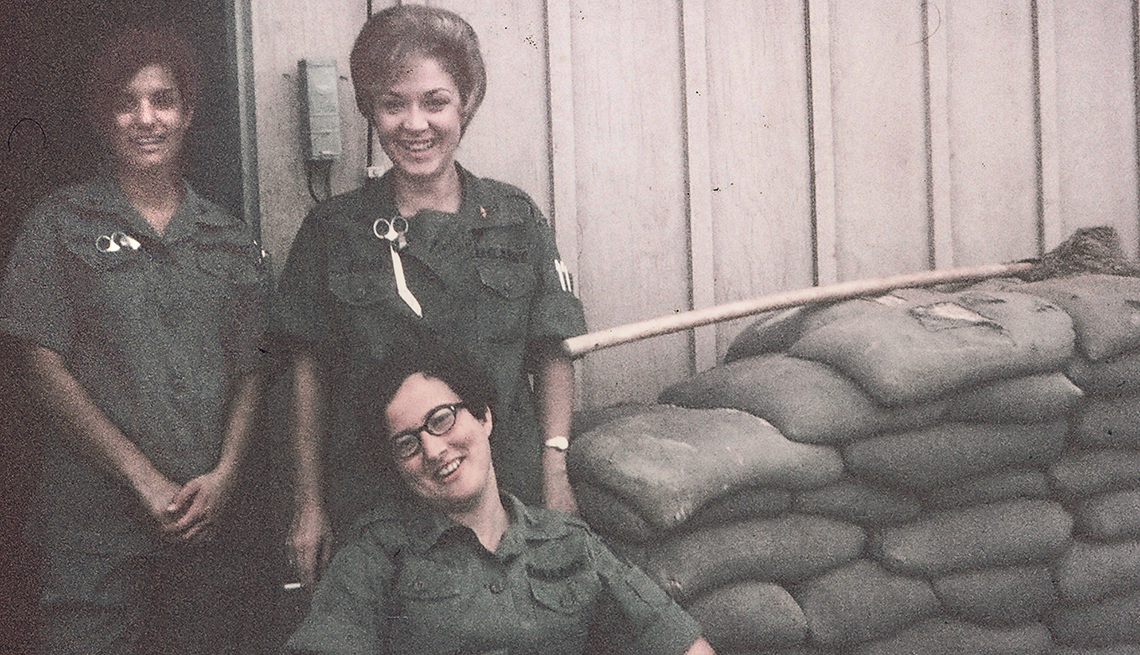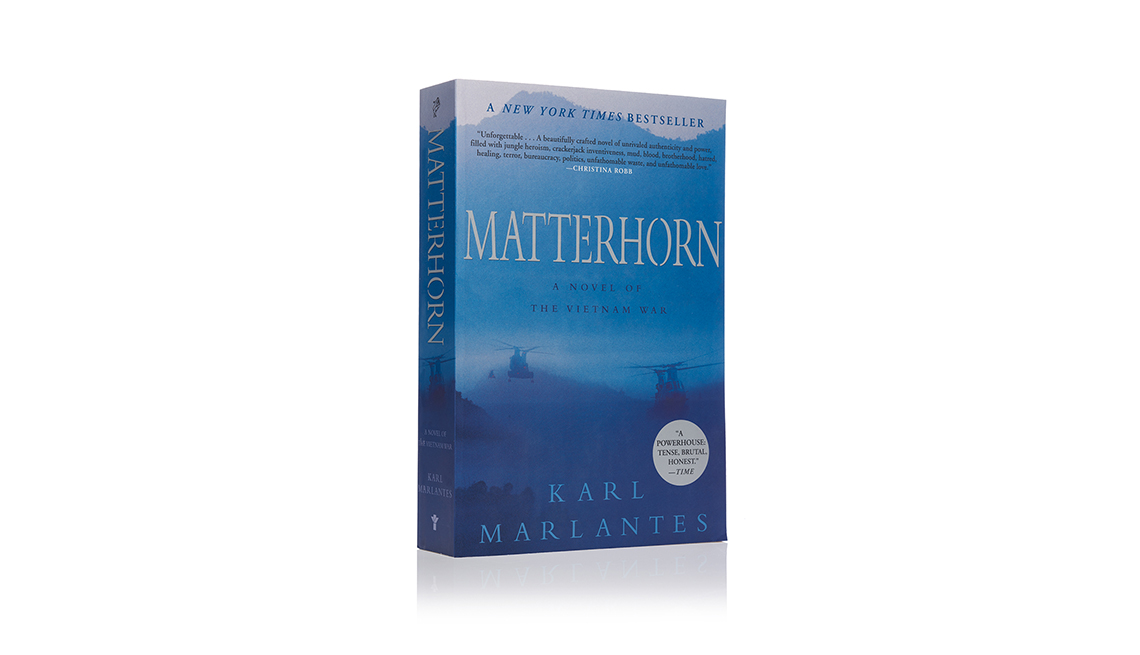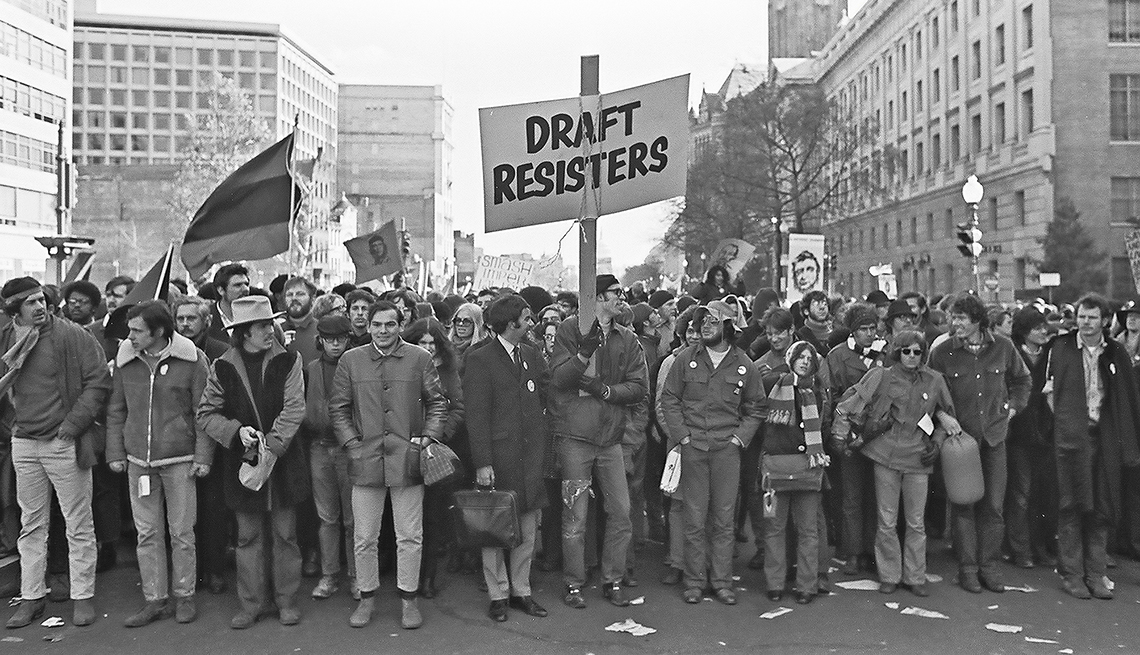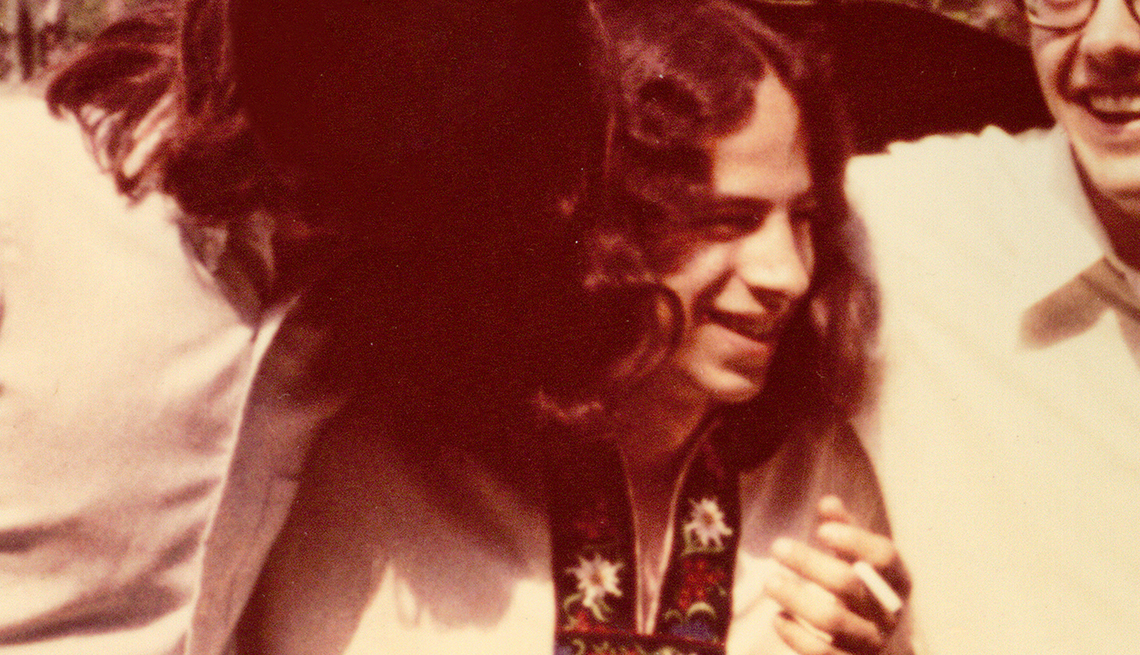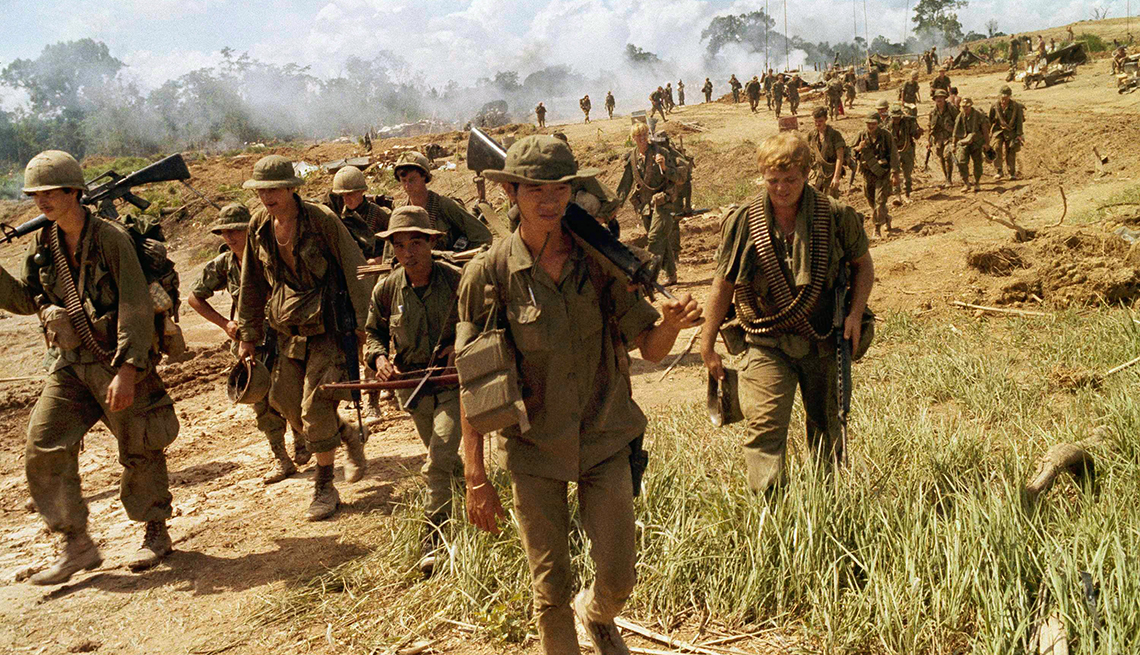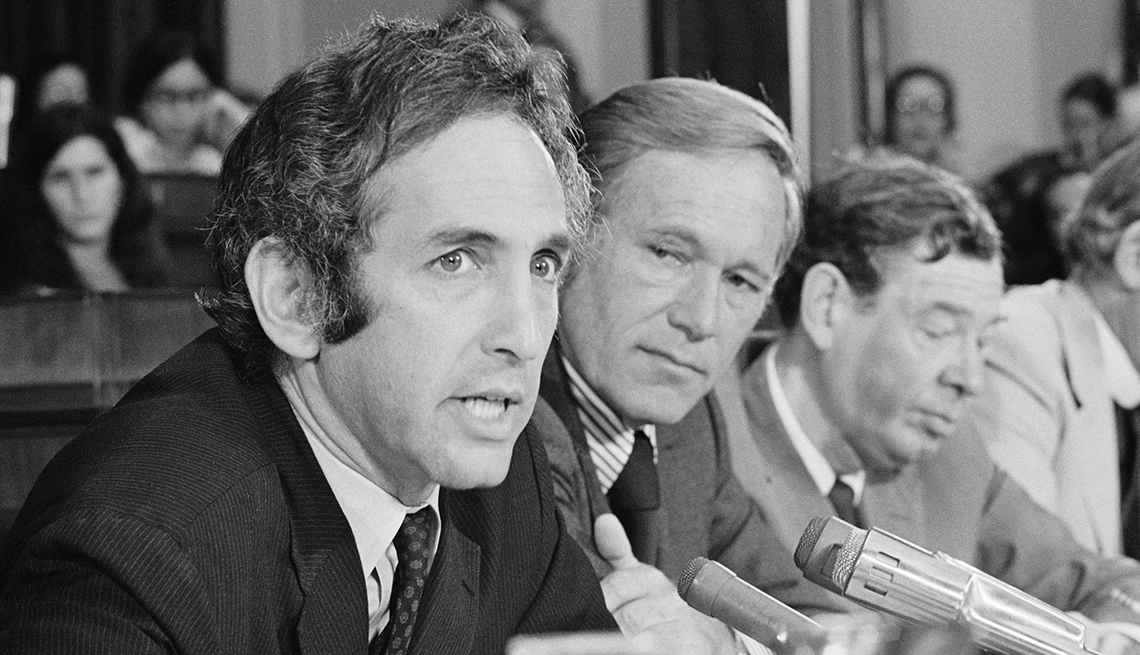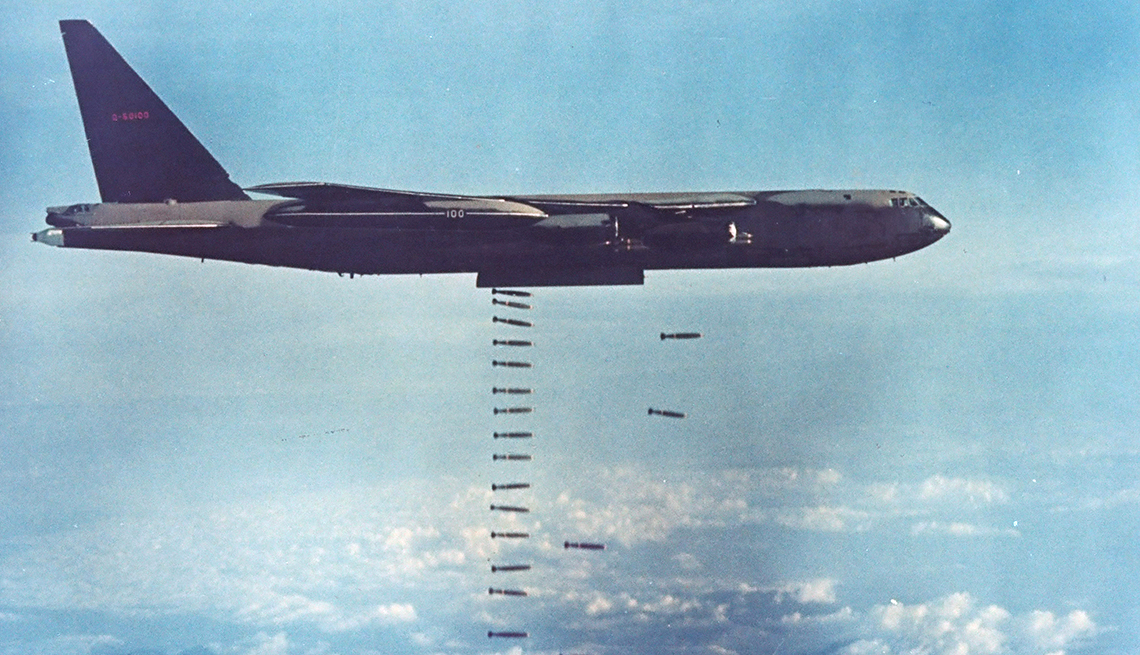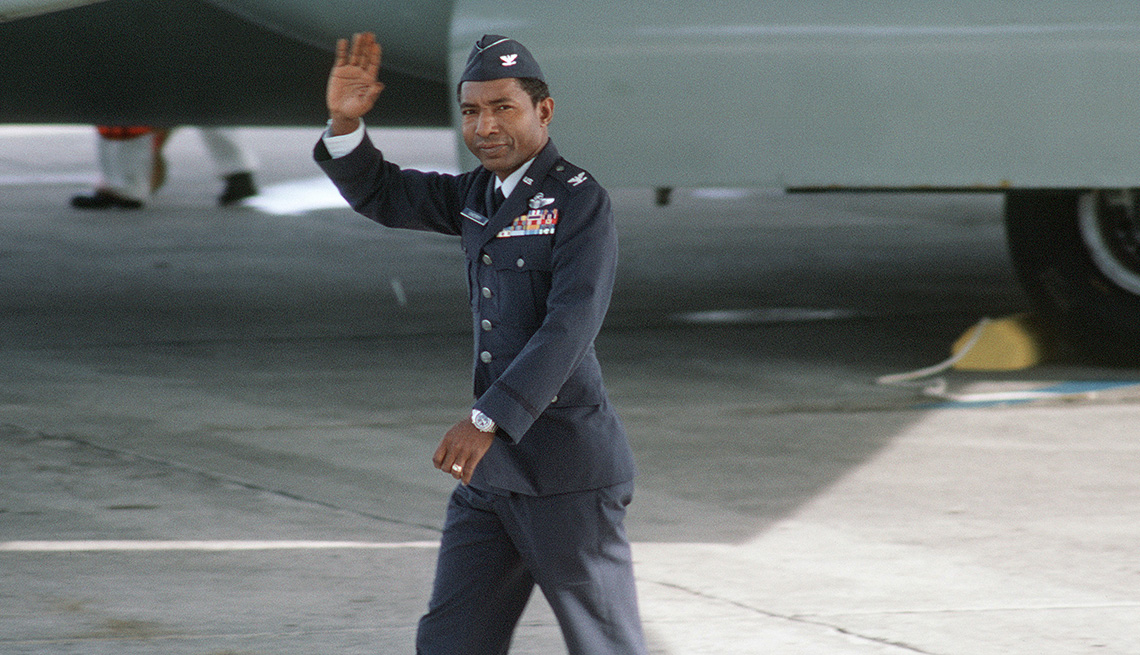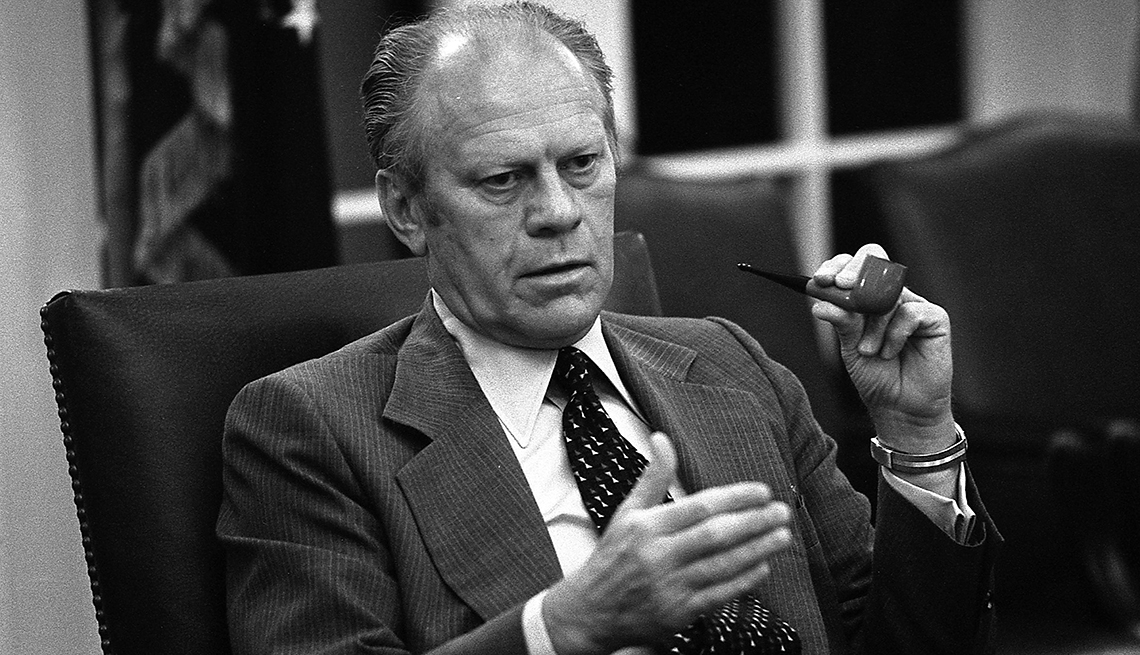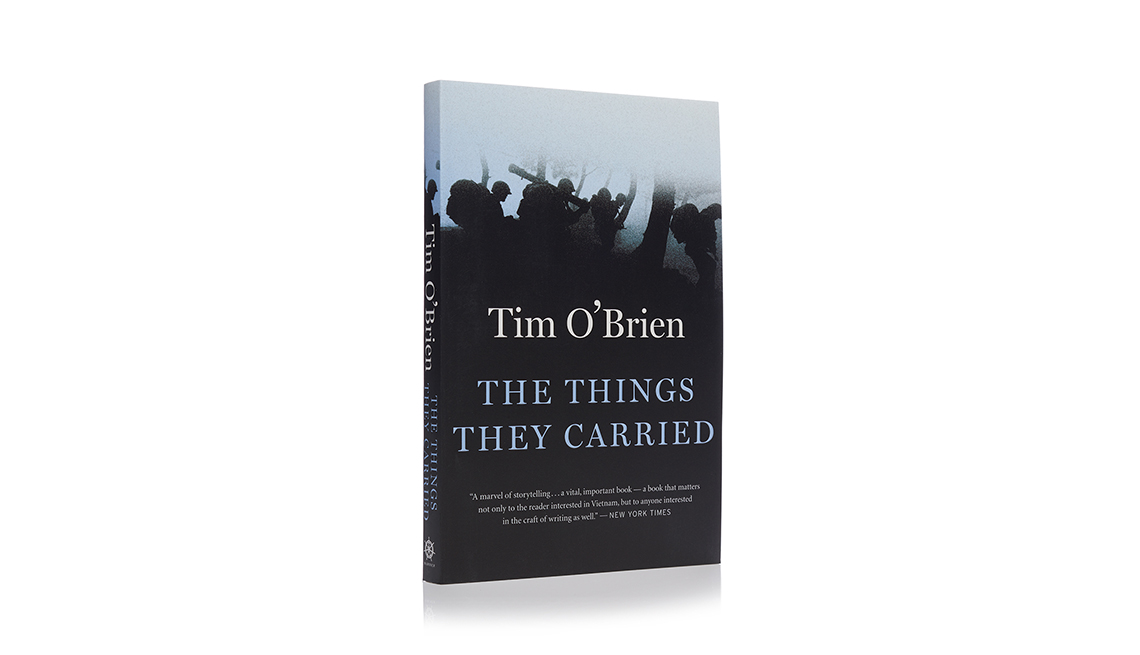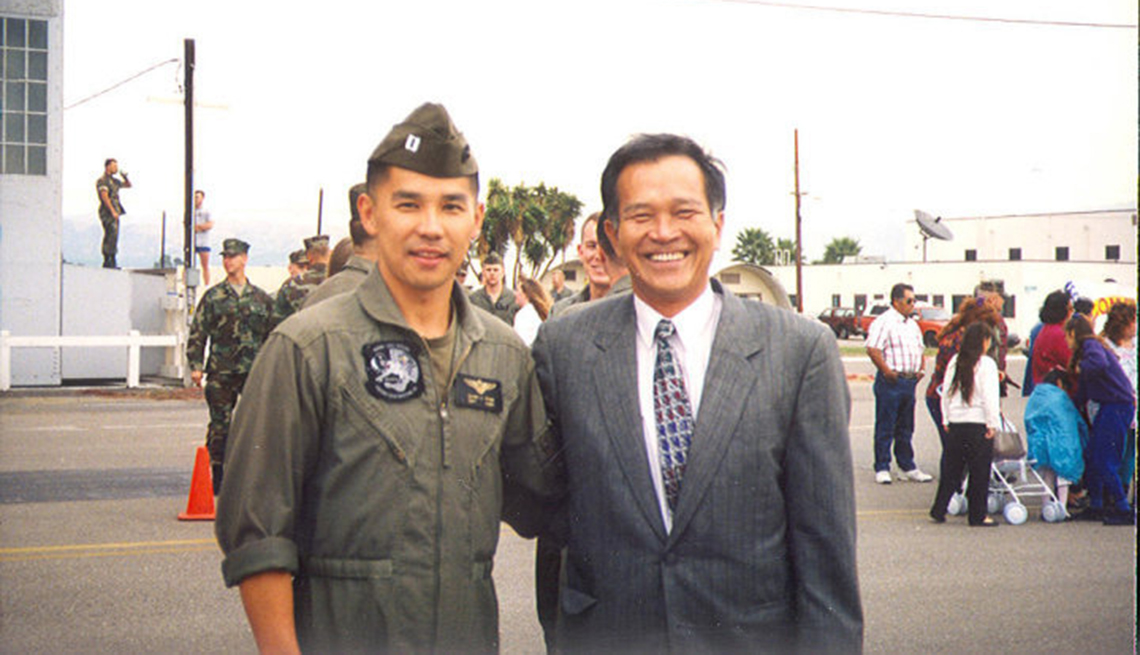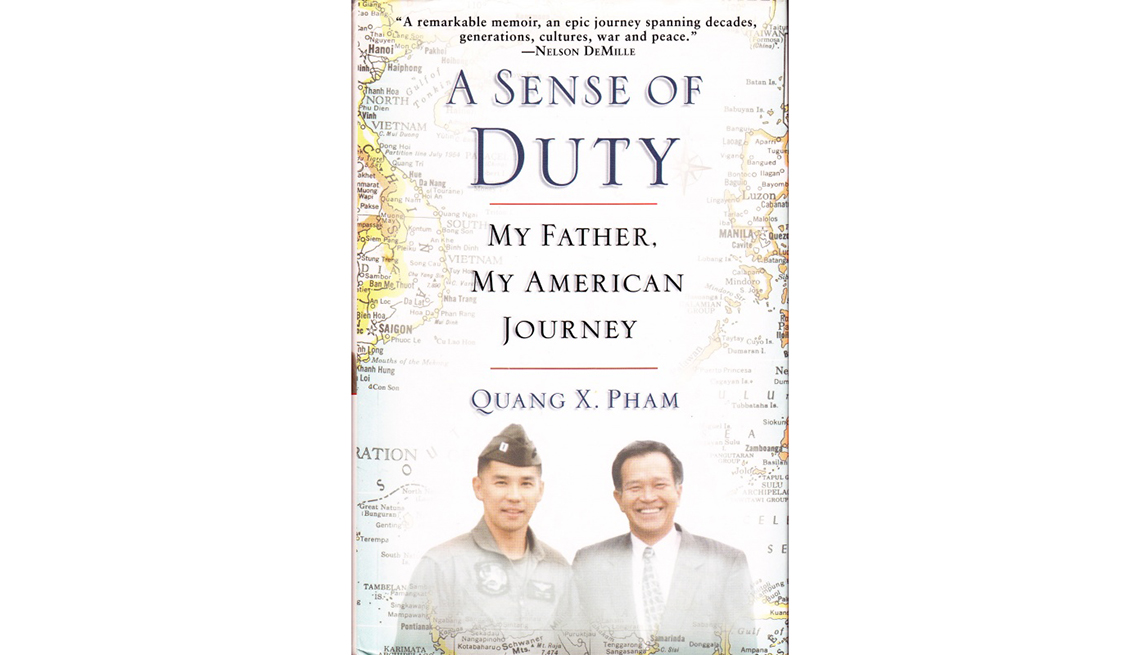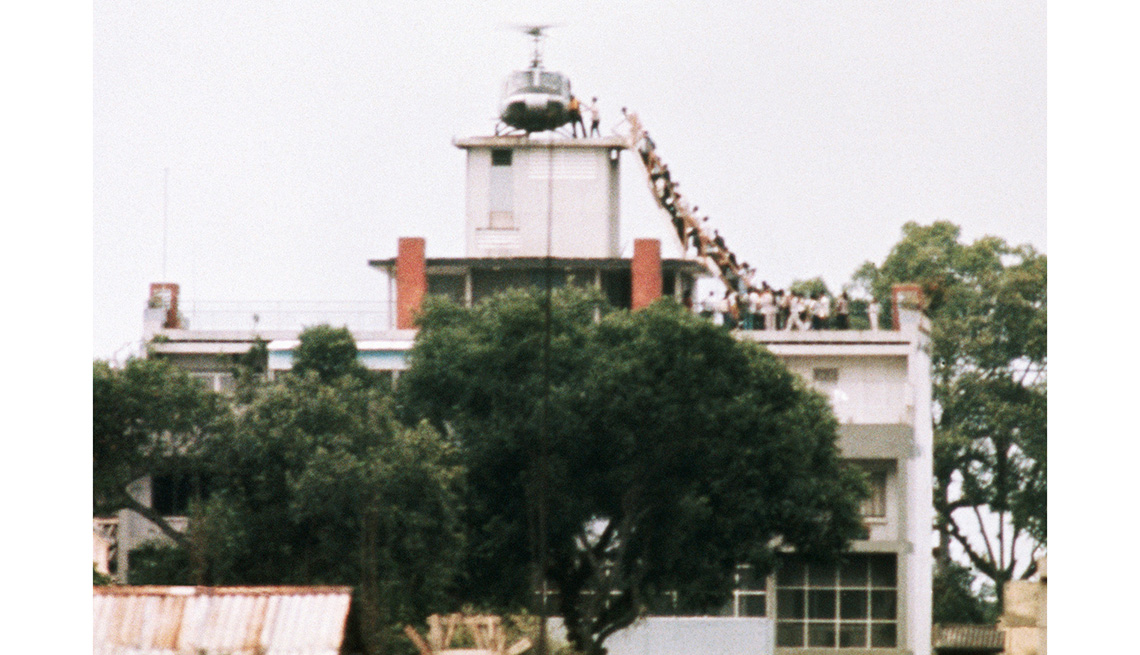The War That Changed Everything
Fifty years ago, the first combat troops arrived in Vietnam. Ten years later, Saigon fell. For those who were there, the memories of those bitterly divisive years live on.
En español | On March 6, 1965, President Lyndon B. Johnson called Georgia Senator Richard Russell, fellow Southern Democrat and chairman of the Senate Armed Services Committee. Johnson was looking for advice on what to do about Vietnam. Days earlier, he had launched Operation Rolling Thunder, the aerial bombing campaign that marked a critical turning point: It was America’s first major offensive in the conflict. In two days a contingent of Marines—the first U.S. combat troops—would land on the beaches near the U.S. air base at Da Nang. America’s war in Vietnam was in its infancy, and already the president despaired of success. “A man can fight if he can see daylight down the road somewhere,” Johnson told Russell. “But there ain’t no daylight in Vietnam. There’s not a bit.”
The echoes of Johnson’s decision to escalate the war continue to haunt many of the 2.6 million U.S. men and women who served in Vietnam, and the millions more whose lives were upended by it. For a generation, “Vietnam was what we had instead of happy childhoods,” as Michael Herr wrote in his 1977 book, Dispatches. Fifty years after the first bombs of Rolling Thunder, America’s most controversial war remains stubbornly unresolved, defined by the questions it raised, the lessons it promised to teach and the memories that those who were there can never forget.
1965
"I never questioned the righteousness of America"
“Have you seen the movie Born on the Fourth of July? That was my life—I was born on the Fourth of July, and most of the scenes in that movie describe how I got to Vietnam. Just like John Wayne showed me in the movies, I was ready to kill the Japanese, only it was the Vietnamese we were going after at that time. It didn’t matter. I was 17.
“The whole time I was in Vietnam, I supported the war effort. In our minds back then, there was this notion of America the bold and the brave to defend. I never questioned the righteousness of America being in Vietnam, even though I didn’t fully understand it. I thought it had to be done.”
— U.S. Army Specialist Fourth Class W. Paul Coates served from 1965 to 1967; he later founded Black Classic Press in Baltimore.
"We weren't buying it."
“Let me tell you why we civil rights workers were so against the war: The federal government was not providing any protection of democracy in Mississippi, yet it told us we had to go 10,000 miles away to protect democracy in Southeast Asia. We weren’t buying it.”
— Miriam Cohen Glickman was arrested at a Washington, D.C., protest in August 1965.
"For years, I was haunted."
“A U.S. Air Force plane dropped two cans of napalm on us. I felt the fire on my face immediately. I looked and there were two guys dancing in the fire, screaming. I don’t know what got into me, but I ran into the fire. I grabbed the feet of this kid, and as I pulled him up his boots crumbled and the skin over his ankle bones sloughed off. I could feel those bones in the palms of my hands. [The soldier, Jim Nakayama, died two days later.] For years I was haunted. How can I explain it to somebody who hasn’t been there? You live with it. You carry so many ghosts. I thought for a while they’d drive me crazy.”
— UPI war reporter Joe Galloway witnessed the four-day Battle of Ia Drang in November 1965. Galloway was awarded a Bronze Star for valor as a civilian. He’s also the coauthor of We Were Soldiers Once … and Young.
1966
"I wonder how I kept my sanity."
“He was a Phantom pilot, F-4s. When he was shot down, I was six months pregnant. At the time he was declared missing in action, it was the kind of thing you didn’t talk about. People didn’t want to hear about it, and the government told us not to talk. But I needed to believe that my husband, the father of our soon-to-be daughter, would come back and we’d be a family. The hope maintained me until I got to the point where I felt strong enough to know what happened."
“In ’83, the casualty officer came again. This time, instead of my being pregnant with my daughter, she was 17 years old, sitting beside me on the sofa while they were telling us that my husband’s remains had been returned from North Vietnam. Many times, I look back at the person I was then and I wonder how I kept my sanity. ”
— Wanda Ruffin’s husband, U.S. Navy Lieutenant Commander James Ruffin, was shot down over North Vietnam on February 18, 1966. He was buried in Arlington National Cemetery in July 1983.
Hear More: Wanda Ruffin talks about the Vietnam Veterans Memorial and her work to reconnect veterans and their loved ones after the war.
1967
"It goes beyond camaraderie. It's like they were a single organism."
“I went out to Hill 881 South [near Khe Sanh] on a Sunday in 1967 and held a little worship service. I talked about the prodigal son from Luke 15 — about how a son goes off into a far-off country and comes to realize that this is not where he’s supposed to be. The Marines were all lined up, and they were really raggedy. Clothes were rotting off. These were, like, 19-year-olds, 20-year-olds, and so different in many ways. Yet they were all Marines, and they took care of each other."
“This became even more evident later on, in the battles — how they would dash out in the middle of incoming and drag a total stranger who had been hit. It goes beyond camaraderie. It’s like they were a single organism. Theologically, I can use the term ‘love’ — they really loved each other, by how they lived and what they did.”
— U.S. Navy Chaplain Stubbe served at Khe Sanh during the 77-day siege of the base in 1968.
Hear More: Ray Stubbe talks about how his perception of soldiers and military personnel changed during his time in Vietnam.
"He's in here."
“I flew at least 800 missions. I saved 2,000 patients. By ‘saving,’ I mean I got ’em out of there. They might have died in the aircraft or in the hospital. Sometimes we’d ask, ‘Where’s the patient?’ And they’d hand over a pillowcase and say, ‘He’s in here.’ ”
— U.S. Army Private Jimmy Johnson, who was awarded a Distinguished Flying Cross for his service as a helicopter medic from 1966 to 1968.
1968
"It seems now more certain than ever that the bloody experience of Vietnam is to end in a stalemate."
— CBS News Anchor Walter Cronkite, in a special report on Vietnam, February 27, 1968.
"I needed to do it."
“It was my idea to go to Saigon. If there was a war out there, I felt I had an obligation to go cover it. If I didn’t, I would spend the rest of my life regretting it. I don’t know to whom I owed anything, but I felt like I needed to do it, because somebody has to do this. But I also have to admit that I found it a rush.”
— Richard Pyle was the AP Bureau chief in Saigon from 1970 to 1973.
Hear More: Richard Pyle explains why he felt that as an American journalist he needed to cover the Vietnam War.
"The strangest thing in the world."
“I was in a six-man recon unit, which they would send way out in the boonies to figure out where the enemy was. In recon, you feel more alone than you do on the front line. No one wants to be the last man in a recon company. Ever take a pin and put it between your nail and your finger? How far can you push that pin before you have to stop?
Those are the things I thought about on missions.
One night I was a patrol leader during a monsoon. Finally, the rain stopped and I relaxed. Then I saw soldier movement in the distance. It was like this large, strange centipede coming down the mountain. They passed by me six inches away but didn’t see me. I hit the mud, just sat down in the muck. And the strangest thing in the world happened. I was — how do I put this? — I was calling for my mom, at least on the inside.”
— U.S. Army Specialist Leroy Quintana served with the 82nd and 101st Airborne divisions in 1967 and 1968.
"The country seethed."
“While back at home, the country seethed with controversy over the war, I do not recall a single discussion on its merits among my fellow officers all the while I was in Vietnam. Questioning the war would not have made fighting it any easier.”
— Colin Powell, a U.S. Army major in Chu Lai in 1968, later served as secretary of state.
1969
"It was insanity."
"There would be these perfectly wonderful and healthy young men, and they were blown up for no reason. Being the naive person I was, I thought the Army was supposed to take care of you. But they were just using these young men up. They were disposable. When I came back, you couldn’t even tell anybody you’d been there — 1969 was the height of the antiwar protests. They were beating up on the wrong people — the soldiers — instead of the people in Congress who were sending them there. You were warned by the nurses who flew over from the States, to take your place, that you should take your uniform off before you walk the streets. When I got to San Francisco Airport, I took a dress I’d packed into the ladies’ room, took my uniform off and threw it in the trash.”
— U.S. Army Nurse Edie Meeks, above, standing at right, served in 1968 and 1969. She’s now an operating-room nurse in Mount Kisco, New York.
"Don't throw it. I won't pull the trigger."
“I was wounded. I was lying on the ground and had him across the sights of my M16. I remember clearly wishing I could speak Vietnamese. I couldn’t. I can remember whispering out loud, ‘Don’t throw it. I won’t pull the trigger.’ And the kid snarled at me — literally — and threw the grenade right at me. And I pulled the trigger.
“It was years later that I was driving down I-5, the interstate that goes through Oregon and Washington. Dark, middle of the night, country music on the radio. And his eyes appeared in the windshield.”
— U.S. Marine Corps First Lieutenant Karl Marlantes was awarded a Navy Cross in 1969. He is the author of the Vietnam War novel Matterhorn. His latest book is the memoir What It Is Like to Go to War.
"None of us had many regrets."
"I left for Canada in August, the same month as Woodstock. There were 50,000 war resisters in Canada. Most ended up in Toronto, Montreal or Vancouver. About half of them are still up there. None of us had many regrets. As the war rolled on, we knew we were in the right place.”
— John Hagan returned to the United States in 1977 and is now a professor of sociology and law at Northwestern University.
"We were right about that war."
"Had we been wiser — though that’s asking a lot from a 20-year-old — we might not have said things like cops were pigs. And those poor people who had to serve in Vietnam, we should have treated them with way more compassion than we did. We didn’t understand you could seek justice and still be compassionate. My defense is that we were young. We were full of ourselves. But we were right about that war.”
— Gary Weiner, a 1971 Cornell graduate, is a mediator in California.
1970
“We were all the way north to Cambodia. I didn’t say that. No Cambodia. I can say we took off our patches, and painted over the stars and bars on the trucks."
"I married up with the 76th Infantry Detachment Combat Tracker Team. They wore boonie caps and whatever the hell else they wanted. Everyone had two canteens of water, one for each person and one for the dog. Gotta keep the dog going. He was a mean, nasty black Labrador named Rigger. He hated me. But he loved Charlie.
“Once we went into a village and found bandages and a blood trail. Rigger went berserk. He followed a game trail to a hospital complex, with tea brewing and rice in the pot. It was still hot. Talk about pucker factor. The guys figured they were 20 minutes ahead of us. We never made contact; they knew we were coming.”
— U.S. Army Sergeant First Class Fred-Otto Egeler was with the 199th Infantry Brigade, which was covertly deployed to Cambodia in the spring of 1970.
1971
"I hope that we will put this war behind us ... in such a way that the history of the next 20 years will read nothing like the last 20 years.”
— Daniel Ellsberg, 10 days after the publication of the “Pentagon Papers”.
1972
"The first view I got of Hanoi being bombed was quite startling. This is odd to say, but it was a remarkably beautiful sight."
“From probably 60 or 80 miles out, you could see the red glow on the horizon, from all the planes ahead of us that had dropped their bombs, and the fires around the Bach Mai Airfield. It was quite a show. ”
— U.S. Air Force Captain Michael J. Connors served as the pilot of a B-52 bomber during Operation Linebacker II in December 1972.
Hear More: Listen as Michael J. Connors recalls a harrowing experience in the skies above Vietnam.
1973
“I tried to stay calm. I was told that if I cooperated, I would be treated well."
"I didn’t cooperate, of course, and things got rougher at the Hanoi Hilton. They’d have torture sessions where they’d tie you up in ropes and pull your legs and put your arms in the middle of your back, and wrap your ankles and wrists up around your head. I went through serious beatings. Some got it worse; some had it less. I was in solitary confinement for 702 days total. The longest stretch was 53 weeks. I don’t have any animosity at all toward the Vietnamese people. It takes too much energy for me to hate somebody I’ve been at war with. I have made my peace with this.”
— U.S Air Force Major Fred Vann Cherry was among the 591 prisoners of war returned to the U.S. after the Paris Peace Accords were signed on January 27, 1973.
1974
1975
"There's this mistaken notion that wars end, but they don't end."
"What about the women that married the veterans and had to sit through silent dinner after silent dinner? Somewhere in this country there’s a 95-year-old woman who will wake up at night and say, ‘Where’s my baby?’ The answer is, her baby has been dead for 45 years. But the war’s not over for that Gold Star mother. It’ll never be over, and you can’t expect it to be over.”
— Tim O’Brien served in the U.S. Army in Vietnam in 1969 and 1970. His novels include the semi-autobiographical The Things They Carried. He appears in the documentary American Masters: The Boomer List.
"He stayed because it was his duty."
“The airplane finally came, and we all ran toward it. I could feel the heat of the exhaust from the back of the C-130. We got on, and Dad was there in his uniform and flight suit. I assumed he’d be on that plane with us.
When the plane took off, we all fell asleep in darkness. That was the last time I would see my dad for over 17 years. He stayed because it was his duty.”
Hear More: Quang Pham remembers his father and his own defining moment.
"Get on the plane. Just go."
“One Vietnamese colonel was putting his family on the plane. He wanted to stay, to defend the country. He was in tears. His family was in tears. And I said to him, ‘Get on the plane. Just go. Go.’ ”
— Stuart Herrington was one of the last U.S. officials to flee the U.S. Embassy in Saigon. He appears in the Academy Award–nominated documentary Last Days in Vietnam.

